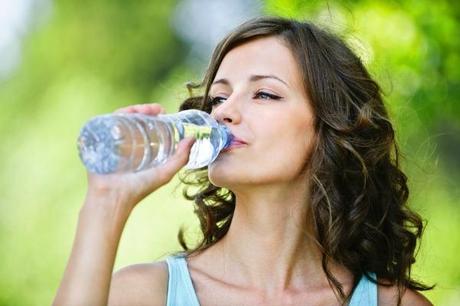
Water is an important constituent of our body. About 60 percent of human body weight is comprised of water. This proportion is a median in statistical data. Actual figures would vary according to age, gender, body weight and such related factors. Water is utilized in most body functions. Many internal chemical reactions within the body take place in the presence of water. At the end of the reaction cycle, water is purged out of the body through sweat or urine. The depletion in water content in human body needs to be replenished with adequate amount of water and similar fluids. Since last many decades, medical researchers are trying to answer the simple question as to how much water one should drink every day to stay healthy.
The responses vary slightly about quantum of water requirement. However the consensus is that every adult human should drink 8 glasses, which is equivalent to about three liters of water. Undoubtedly, the actual figure would vary as per change in circumstances. Age, gender, ambient temperature, lifestyle are important parameters, which can affect actual need and subsequent water or fluid consumption in individual cases. Specialists’ advice for water intake is that more water intake than average is a lesser evil than fewer intakes. Continuous absence of adequate water in human body leads to dehydration. Body dehydration leads to many complications and warrants immediate remedial measures, including medical intervention.
Age between 10 to 50 is generally period full of action in human life. Activities like physical work, study, travel, playing are all involving rigor. Hence, more water is purged out of body during these activities, entailing higher replenishment. Beyond this age band, activities are less rigorous and hence water requirement would be low.Women are found to have less requirement of water as compared to their male counterparts.Women have relatively lighter body weight, which makes the difference. Physical activities also tend to be less strenuous. Ambient temperature makes a significant impact on the water needs.
People living in temperatures below say 25 degrees Celsius would certainly lose less body water through perspiration, when compared to people living above say 40 degrees Celsius. Hence their water requirement would be varying. Activity level of individuals at particular time intervals may cause a need for higher water intake. Activities like sports, trekking, dancing, exercising result in increased perspiration, thereby demanding higher water intake.
Finally, individuals have to make their own rules for water intake. Some researchers have also suggested that thirst must be the sole guiding principle for determining water requirement. Thus, if one is thirsty, then one must consume enough fluids, electrolytes, water, so as to feel quenched. This school of thought postulates that body’s responses are best indicators and that these signals must be duly addressed. Certain guidelines may additionally be used for arriving at individual water needs. A glass of water may be taken with and between meals. Similarly, one glass of water may prove beneficial if consumed before and during and after exercising. Every adult person can very well decide upon quantum and frequency of fluids to be conveniently consumed, based on their own experiments and understanding. However, people who need assistance in deciding these matters accurately can consult doctors and dietitians to pinpoint the solutions. Athletes, sprinters, dancers have special needs. Their needs are addressed by specialists in the field.

